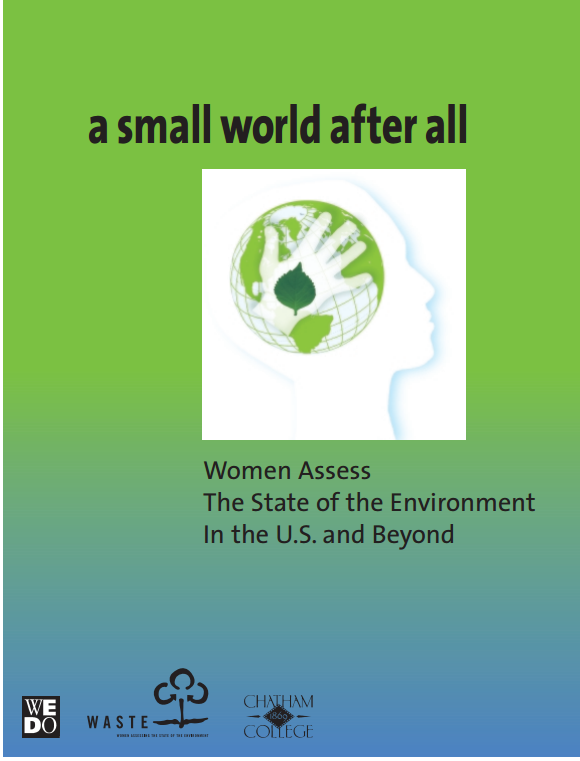In “A Small World After All”, Women assess the state of the environment in the U.S. and beyond.
Historically, women have been the ones who have led their communities to challenge dangers to the environment. Yet women and their perspectives on the environment are often marginalized, as those from affected communities are typically neither consulted on development decisions, nor proportionally represented in decision-making positions with the power to shape environmental, developmental and human rights outcomes.
“Women do not want to be mainstreamed into the polluted stream. We want to clean the stream and transform it into a fresh and flowing body. One that moves in a new direction—a world at peace, that respects human rights for all, renders economic justice and provides a sound and healthy environment.” —BELLA S. ABZUG
Despite being shut out, women respond by coming together and working for change. They have challenged conventional scientific understanding, developed new methods of documenting harm, pushed for international standards, as well as national and local regulation, and consistently demonstrated the links between environmental degradation and women’s lives, economic viability and community and family health.



